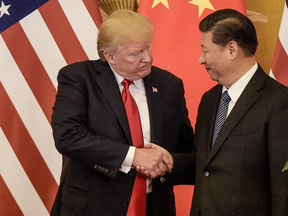The recent decision by China to ban exports of rare metals to the United States has underscored the importance of trade cooperation between mineral-rich Canada and its southern neighbor.
A Stark Reminder of Geopolitical Tensions
According to the Mining Association of Canada, China’s move is a "stark reminder of the challenges posed by geopolitical tensions, particularly on the reliable supply of critical minerals." The association emphasized that this development highlights the need for cooperation between Canada and the US to ensure secure and reliable supply chains.
Implications of Imposing Tariffs
The Mining Association’s president, Pierre Gratton, stated that imposing tariffs on Canadian mineral and metal exports to the US would be counterproductive. "Such measures risk disrupting the essential flow of these resources, undermining the competitiveness of North American industries, and exacerbating vulnerabilities in critical mineral supply chains," he warned.
Canada-US Trade Relations
The trade tensions between Canada and the US have escalated with President-elect Donald Trump’s threat to slap 25% tariffs on all goods coming from Canada and Mexico unless the countries each do more to stem migration and fentanyl. The Canadian mining industry has expressed concerns that imposing tariffs on mineral and metal exports would harm both nations’ interests.
Statistics on Trade Between Canada and the US
In 2022, more than half of Canada’s mineral exports, valued at over $80 billion, were destined for the US. The Mining Association’s members include prominent Canadian mining companies such as Barrick Gold Corp., Agnico Eagle Mines Ltd., Cameco Corp., and BHP Group Ltd.
Impact on Critical Minerals
The ban on rare metals has significant implications for industries reliant on these materials. Germanium, a key metal affected by the ban, is used in fibre optics, night-vision goggles, and space exploration. Most satellites are powered with germanium-based solar cells. Canada was responsible for supplying nearly half of the US’s import needs of germanium between 2019 and 2022.
Canadian Industry Response
In response to China’s export ban, Vancouver-based metals producer Teck Resources Ltd., one of the world’s largest integrated germanium producers, is exploring ways to boost its output of the metal. The company acknowledged the importance of diversifying supply chains to mitigate risks associated with geopolitical tensions.
Conclusion
The China-US trade dispute highlights the need for cooperation between Canada and the US to ensure a stable and secure supply chain for critical minerals. By working together, both nations can address vulnerabilities in their respective supply chains and promote economic growth.
What’s Next?
As trade tensions continue to rise between the US and its trading partners, it is essential for Canada to take a proactive approach to strengthening its relationship with the US. By doing so, Canada can minimize potential disruptions to its mineral exports and ensure continued economic growth.
Recommendations
- Enhance cooperation: Strengthen bilateral relations with the US through enhanced trade agreements and negotiations.
- Diversify supply chains: Canadian companies should explore alternative sources for critical minerals to reduce reliance on any single supplier.
- Invest in research and development: Encourage innovation in mining technologies and practices to improve efficiency, reduce costs, and increase output.
By following these recommendations, Canada can position itself as a reliable partner for the US and mitigate potential risks associated with the ongoing trade tensions.


























